
White Banners is a 1938 Warner Bros. drama film directed by Edmund Goulding and starring Claude Rains, Fay Bainter, Jackie Cooper, Bonita Granville, Henry O'Neill, and Kay Johnson.
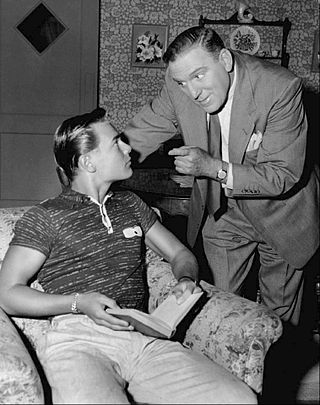
The Life of Riley is an American radio situation comedy series of the 1940s that was adapted into a 1949 feature film, as well as two different television series, and a comic book.

Roll of Thunder, Hear My Cry is a 1977 Newbery Medal awarded novel by Mildred D. Taylor. It is a part of her Logan family series, a sequel to her 1975 novella Song of the Trees.

Walter III of Brienne was a nobleman from northern France. Becoming Count of Brienne in 1191, Walter married the Sicilian princess Elvira and took an army to southern Italy to claim her inheritance. He became Prince of Taranto in her right in 1201 but died fighting before he could establish himself as King of Sicily.

They Drive by Night is a 1940 American film noir directed by Raoul Walsh and starring George Raft, Ann Sheridan, Ida Lupino, and Humphrey Bogart, and featuring Gale Page, Alan Hale, Roscoe Karns, John Litel and George Tobias. The picture involves a pair of embattled truck drivers and was released in the UK under the title The Road to Frisco. The film was based on A. I. Bezzerides' 1938 novel Long Haul, which was later reprinted under the title They Drive by Night to capitalize on the success of the film.

Let The Circle Be Unbroken is the 1981 historical children's novel by Mildred D. Taylor. A sequel to Roll of Thunder, Hear My Cry (1976), the book is set in Mississippi in 1935, and continues the saga of the African-American Logan family as they struggle to make a living sharecropping during the Great Depression. Several trials and tribulations are faced by the family told from the perspective of the African-American experience, including issues of racism in the criminal justice system, interracial marriage, "passing", and poverty. Ultimately, the novel emphasizes themes of self-respect, hard work, and pride. It won the Coretta Scott King Author Award in 1982.
Lincoln Heights is an American family drama television series about Eddie Sutton, a Mission Vista police officer who moves his family back to his old neighborhood, Lincoln Heights in the city of Los Angeles, California, to start a new life and to help out his old neighborhood. It is a dangerous place to raise a family, and through the many trials the family goes through, they soon learn that settling in is not as easy as it seems. While Officer Sutton struggles to cope with everyday life as a street cop in Los Angeles, his kids try to fit in at their new schools and with their new neighbors.
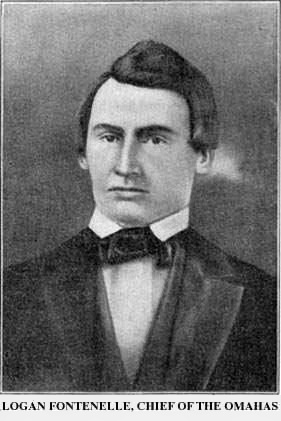
Logan Fontenelle, also known as Shon-ga-ska, was a trader of Omaha and French ancestry, who served for years as an interpreter to the US Indian agent at the Bellevue Agency in Nebraska. He was especially important during the United States negotiations with Omaha leaders in 1853–1854 about ceding land to the United States prior to settlement on a reservation. His mother was a daughter of Big Elk, the principal chief, and his father was a respected French-American fur trader.

Just Rambling Along is a 1918 American short silent comedy film featuring Stan Laurel. The film is Laurel's earliest surviving work and the first project he did with film producer Hal Roach, who later put out a large portion of the Laurel and Hardy films.
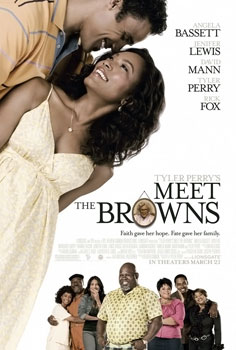
Meet the Browns is a 2008 American romantic comedy-drama film released by Lionsgate on March 21, 2008. The film was based on the play of the same name by Tyler Perry and is the third film in the Madea cinematic universe. It was written and directed by Tyler Perry with Ruben Cannon helping with the writing, and starring Angela Bassett, Rick Fox, Margaret Avery, Frankie Faison, Jenifer Lewis, Lance Gross, Sofía Vergara, Lamman Rucker, Tamela Mann, Tyler Perry, and introducing David Mann in his film debut as Leroy Brown. The film tells the story of a struggling single mother from Chicago who takes her children to Georgia to attend her long-lost father's funeral and meets the relatives she didn't know she had.
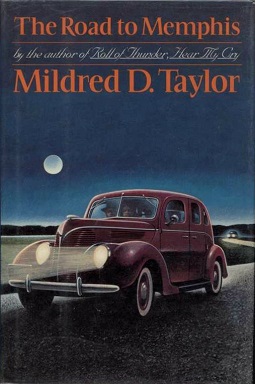
The Road to Memphis is a historical fiction novel written by Mildred D. Taylor. It was first published in 1990 by Dial Press. It is the fifth book in the saga following: Song of the Trees (1975), Roll of Thunder, Hear my Cry (1976), Let the Circle Be Unbroken (1981), and The Gold Cadillac (1987). Chronologically, this is the second to last book in the series to focus on the Logans. A prequel, The Land, was released in 2001. Taylor then released the final book in the entire saga, a sequel to The Road to Memphis titled, All the Days Past, All the Days to Come, in January 2020.
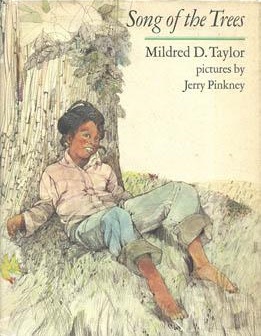
Song of the Trees is a 1975 story by author Mildred Taylor and illustrator Jerry Pinkney. It was the first of her highly acclaimed series of books about the Logan family. The novella follows the time Mr. Anderson tried to cut down the trees on the Logan family's land. The story revolves around Cassie Logan who tries to save the trees on her Big Ma's land. Even though Cassie's family needed some money, something told Cassie the trees were just as valuable.
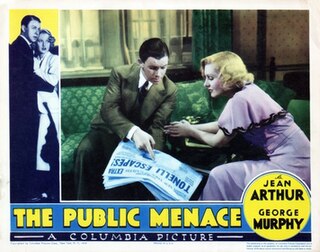
The Public Menace is a 1935 American black-and-white romantic drama film starring Jean Arthur, George Murphy and Douglass Dumbrille. A newspaper reporter keeps losing and regaining his job due to a manicurist he is persuaded to marry.

The Speed Classic is a 1928 American silent action film directed by Bruce M. Mitchell and starring Rex Lease, Mildred Harris and Mitchell Lewis.












